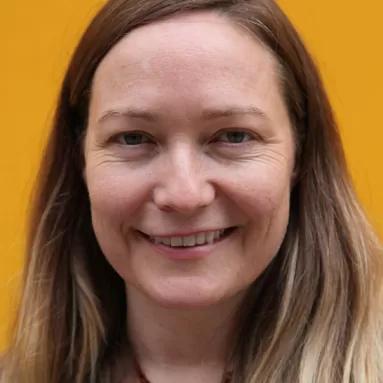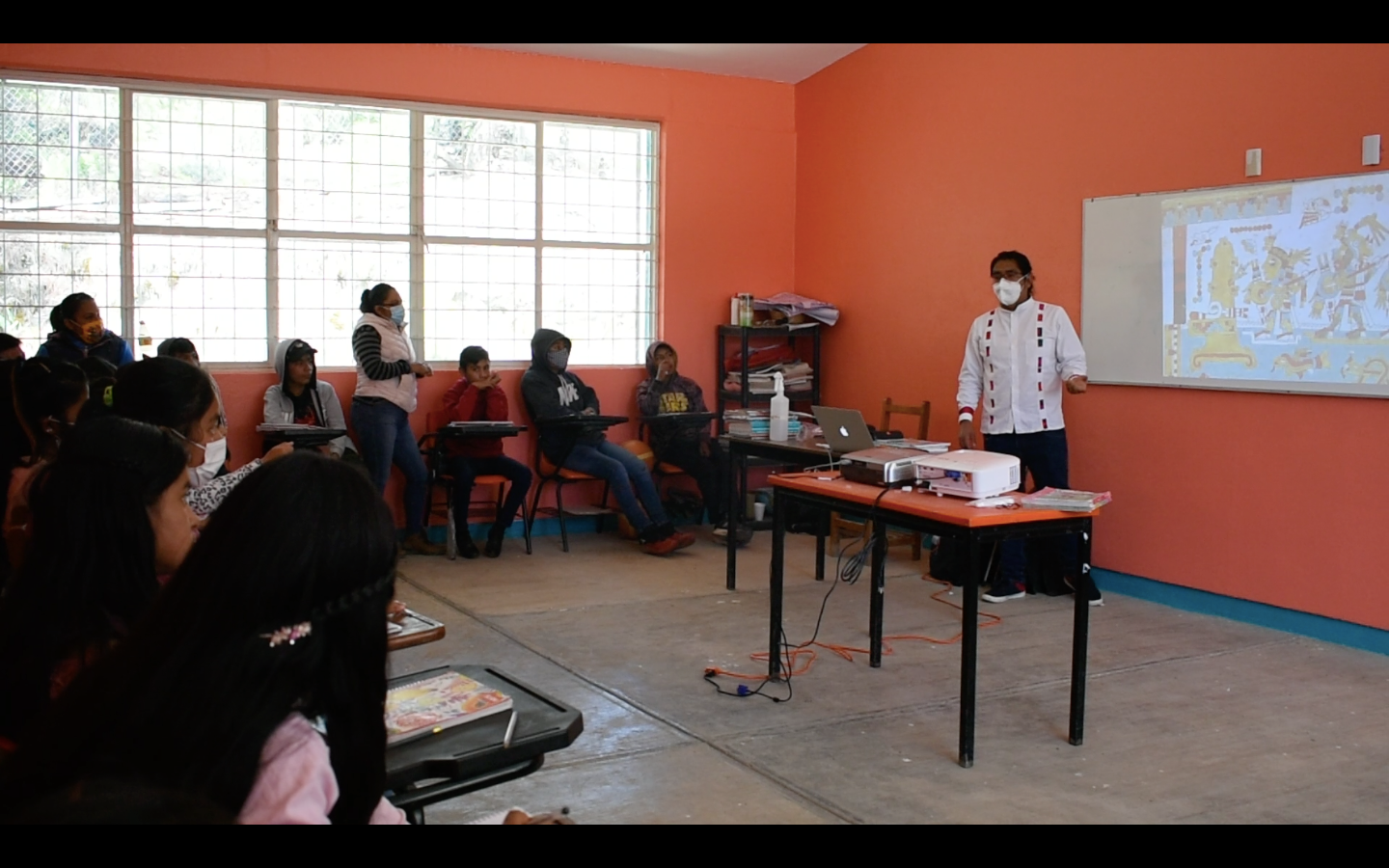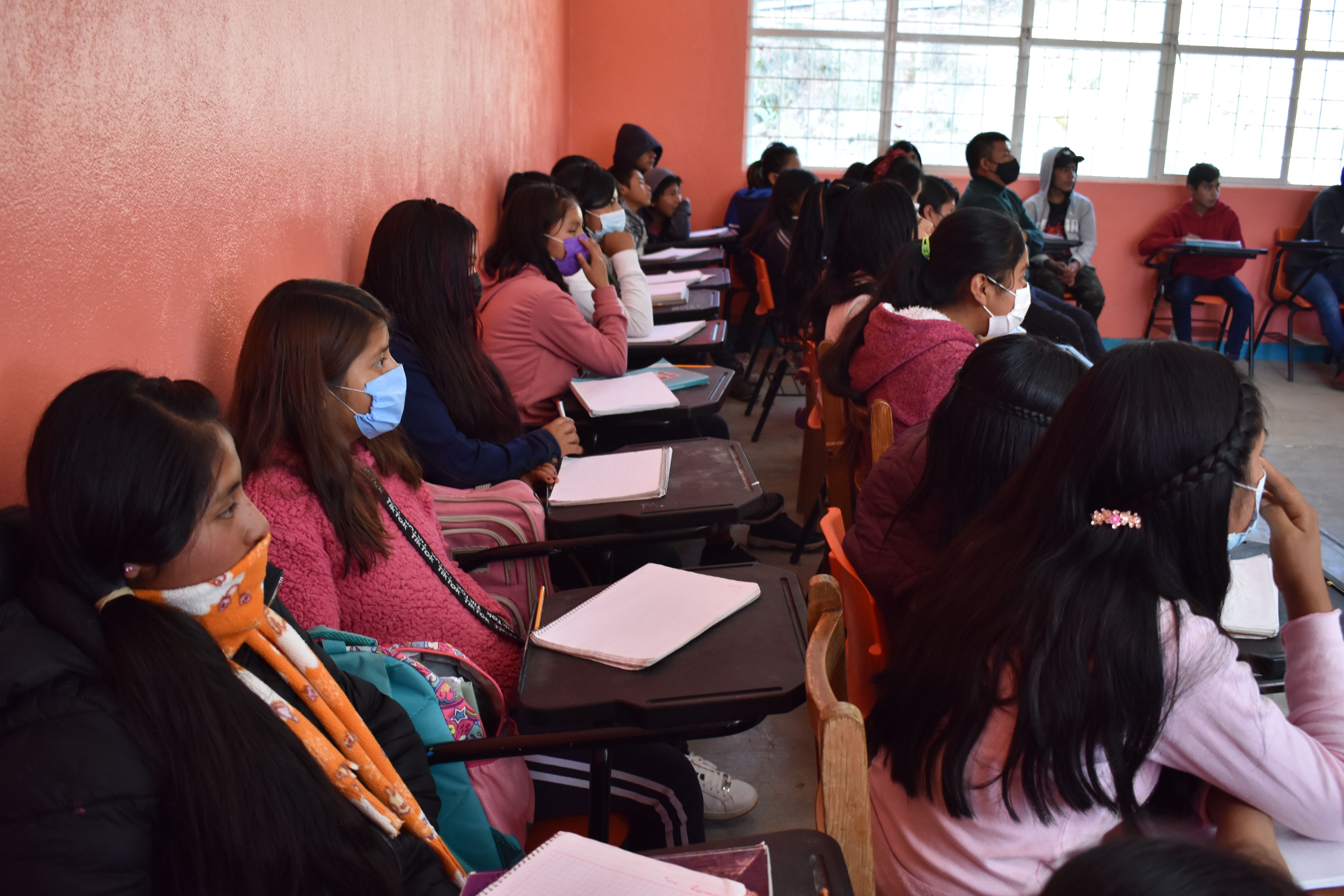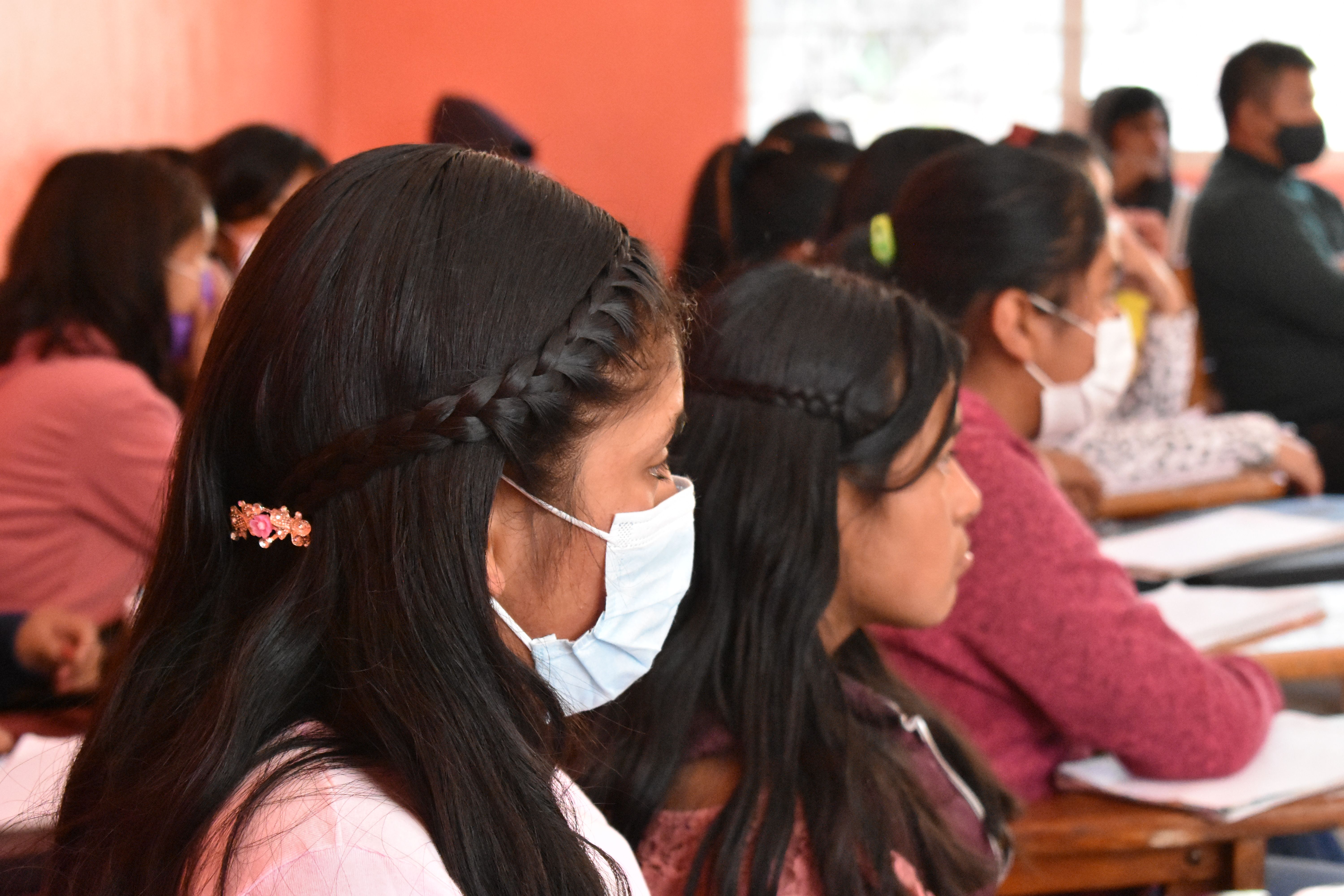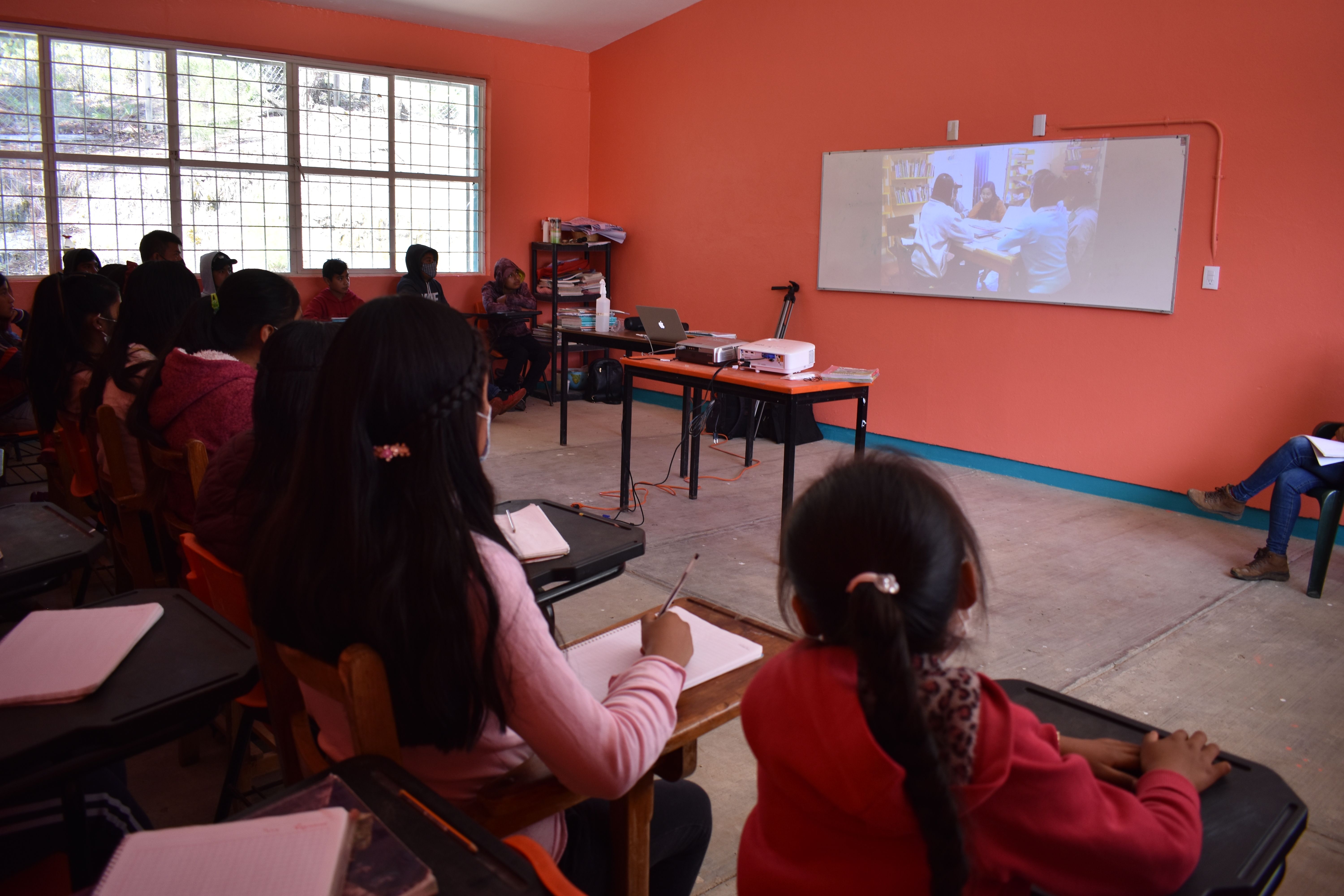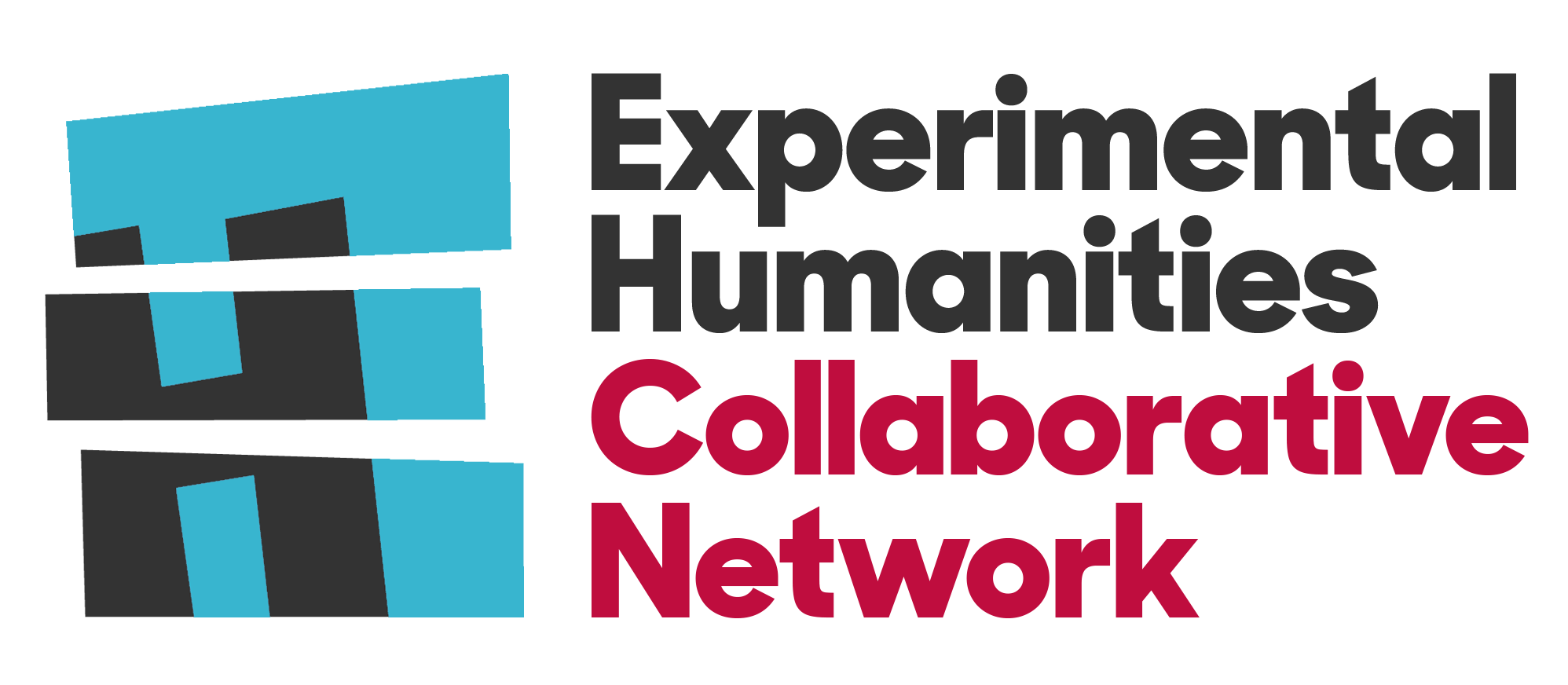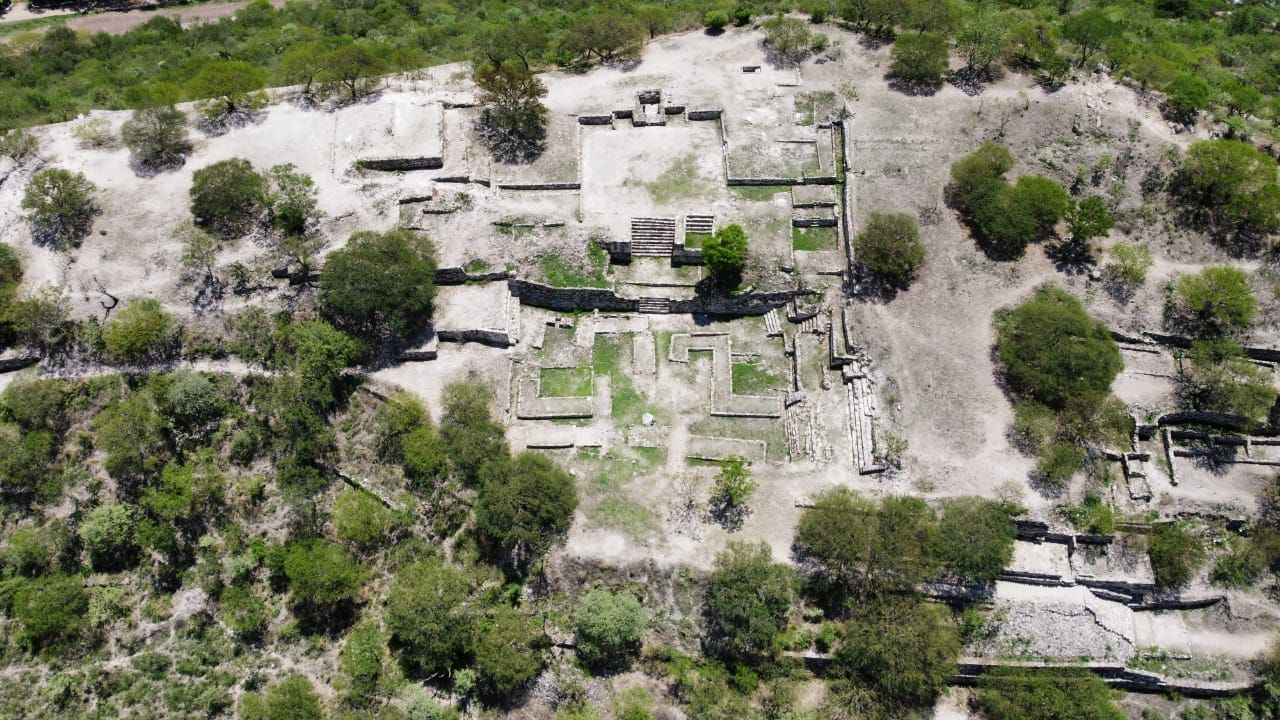Welcome to The Experimental Humanities Collaborative Network
Codices and Living Heritage of the Ñuu Savi
Nunuma, Santo Tomás Ocotepec, Tlaxiaco, Oaxaca, Mexico
The workshop “Codices and Living Heritage of the Ñuu Savi” provided cultural continuity around knowledge about the Ñuu Savi (Town of the Rain), and links between the past and contemporary cultural practices and rituals of the Mixtec community of Santo Tomás Ocotepec. Teachers and high school students of the Nunuma community participated and also attended the premiere of the documentary Ñii Ñu'u in the Mixteco town.
Workshop facilitator: Omar Aguilar Sánchez
Supervisor: Recovering Voices, National Museum of Natural History, Smithsonian Institution Gwyneira Isaac is a cultural anthropologist and Curator of North American Ethnology at the National Museum of Natural History (NMNH) at the Smithsonian Institution. Her research investigates the dynamics of and intersections between culturally different knowledge systems. Central to this study is her ethnography of a tribal museum in the Pueblo of Zuni, New Mexico, Mediating Knowledges: Origins of a Museum for the Zuni People (2007), in which she examines the challenges faced by Zunis operating between Zuni and Anglo-American approaches to knowledge. Her explorations into these knowledge intersections (either culturally or disciplinarily distinct), include how technology and media are used within the discipline of anthropology. She looks at the different values attributed to the reproduction of knowledge as explored through museum replicas in ‘Whose Ideas Was This?’ Replicas, Museums and the Reproduction of Knowledge’ (2012), as well as “Perclusive Alliances: Digital 3-D, Museums and the Reconciling of Culturally Diverse Knowledges” (2015). Currently, she is researching the history of face casting in the 19th and 20th century and the intersectional histories these now engage, where descendant communities, physical anthropologists and museums grapple with the legacies of these duplicated bodies. As part of the Recovering Voices program she helps to lead at the NMNH, she is working on exploring the use of collections by Native American communities within their cultural revitalization efforts. As part of this effort, in 2012, she formed the Health and Culture Research Group (HCRG) to bridge Anglo-American and Indigenous approaches to Native American health issues. The project she brings to the EHCN OSUN group, To Be—Named, looks at the cultural politics of naming, especially via the intersections between different disciplinary naming practices, colonizing and decolonizing naming practices, as well as issues around naming and race. The aim of the project is to build bridges between the academy and diverse and Indigenous communities, as well as to find multi-modal methods, media and technologies that will help creatively and ethically assemble, exchange and build understanding around responsibilities towards knowledge diversity.Gwyneira Isaac
